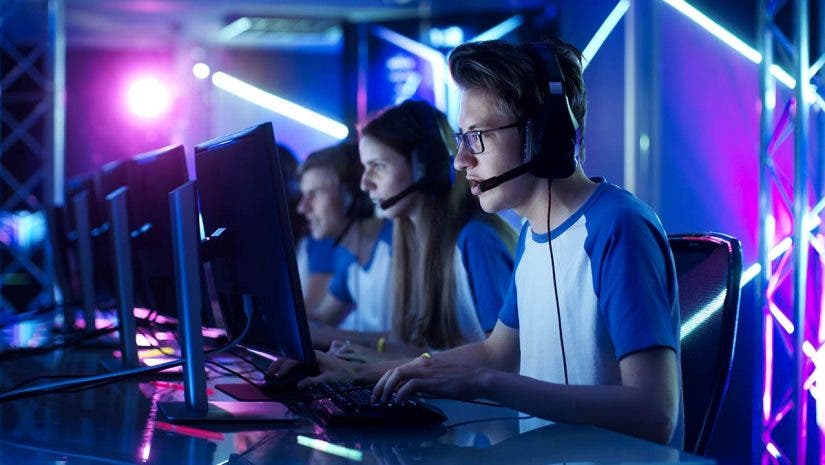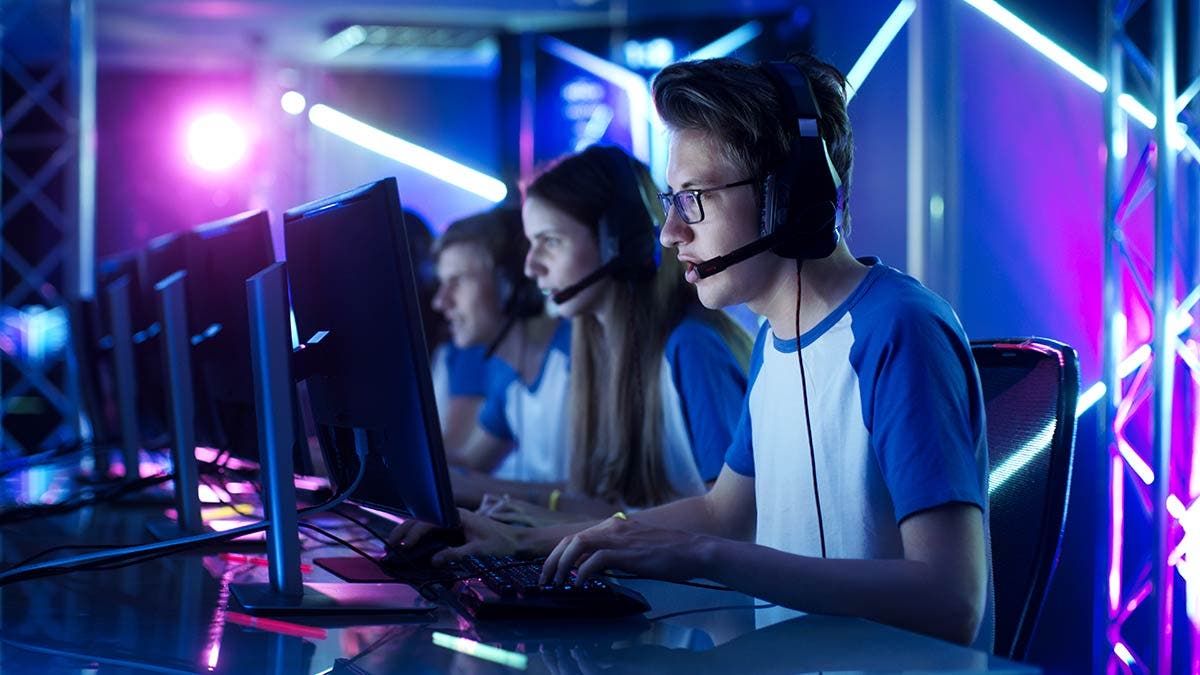Video games have grown more popular and mainstream than ever before in recent years, so much so that it’s becoming an integral part of today’s cultural zeitgeist. Subsequently, esports and competitive gaming, in general, have dramatically risen in popularity as a result. Within the past decade, esports — and the era of esports clubs — has blossomed beyond being merely an amateur pastime and into an industry that is poised for massive growth.
There are countless jobs being created in and around esports beyond just the players and coaches. These range from shoutcasters that serve similar roles that commentators do in traditional sports, network and infrastructure engineers that make competitive esports tournaments possible, broadcast engineers that ensure an esports live stream goes off without a hitch, to other more traditional business roles such as those in finance and human resources as well.
To better prepare today’s students for the burgeoning esports market, high schools and universities need to create esports clubs and programs that can help students navigate these emerging career paths.
Skills That Esports Clubs Teach
Although detractors may be quick to dismiss esports as simply the playing of video games, it is much more complex in practice. While video games are the medium through which organized esports competitions take place, achieving success in esports requires many of the same skills that are critical to success in traditional varsity, junior varsity, intramural, and club sports in high schools and universities.
On top of honing the raw talents of its players, successful esports clubs will also help players develop a plethora of critical skills that will guide them towards success on the virtual esports battlegrounds as well as in the real world. Verbal communications, active listening, coordination, delegation, critical thinking, multitasking, social perceptiveness, teamwork, determination, and perseverance are just some examples of interpersonal and social skills that esports clubs can foster in its players.

Starting an Esports Program at Your Own Educational Institution
Start Small and Build Momentum
Kickstarting an esports club or program from the ground up is a daunting task. To expect it to take off overnight would be unrealistic. Rome wasn’t built in a day, after all. Considering forming a recreational gaming club first before diving headfirst into forming an esports team.
A club setting provides an accessible way for schools to gauge interest among their students interested in exploring Esports-related opportunities. It also gives your educational institution time to explore the many considerations that forming a full-fledged esports team entails.
You’ll want to survey stakeholders (parents, educators, and administrators) about their understanding of esports in general. You’ll also want their preferences regarding budget allocation, game titles, associated violence levels, potential opportunities (e.g. scholarships, careers), and any other questions or concerns.
Find Someone to Helm the Project
Having an advisor to oversee your school’s gaming club is critical if your goal is for it to graduate into a full-fledged esports program. This can be a volunteer faculty advisor with an interest in gaming towards the beginning. As the club matures and your school is ready to commit to a dedicated esports club, you’ll want to bring on a full-time coach along with a program director and related support staff to ensure the program’s success.
The Right Equipment is Key
Although by no means a guarantee towards success, having the right equipment can certainly give your players a competitive advantage. When it comes to esports, professional-grade peripherals are arguably even more important than the computers themselves. Outfitting your players with reliable mechanical keyboards, gaming mice, and headsets is paramount.
With that said, you’ll also want to equip your players with high-end computers that come kitted with the latest processors, graphics cards, and plenty of memory. Depending on the types of games that your Esports team is playing competitively, a high refresh rate display will be critical as well.
You’ll want to seek out computer equipment experts (such as members of your educational institution’s IT department) to properly spec out the computers. They can also help maintain and upgrade your esports team’s computers so that they’re always running in tip-top condition. You’ll also need a place to house all this equipment, leading to our next point.
A Place to Call Home
Like any other scholastic club or sports team at your educational institution, your gaming club and/or esports club will need a designated facility to congregate, play, and practice. It’s also where all your esports team’s gaming computers and peripherals can be securely set up. This can be a small, unoccupied computer room at first somewhere within your educational institution.
With luck, however, your esports team will eventually outgrow it as it improves and expands. While the original space can continue to serve as a practice facility, your esports program will eventually require a dedicated and well-appointed facility not dissimilar to a LAN center. Like all the cutting-edge equipment housed within your esports facility, these facilities won’t come cheap.

Funding & Financial Investment
Between filling key coaching, programming, and support positions, equipping your esports clubs with reliable gaming computers and peripherals, and properly outfitting your gaming facility, significant funding will be required for your scholastic esports program to succeed. You’ll want to determine the salaries associated with the various positions, get quotes from vendors for the gaming computers and peripherals, as well as determine the costs associated with outfitting and operating your institution’s Esports facility.
Once you’ve put together a budget, your next step is to demonstrate the potential ROI (return on investment) of your esports program to the various stakeholders at your educational institution that we’ve previously outlined and to convince them to allocate the necessary funding. You may also be able to amortize some of the capital and operating expenditure through merchandising, sponsorships, and advertising. As your Esports program grows, more of these opportunities will present themselves.
Seek Support and Growth Opportunities from Governing Bodies
As with any other scholastic/collegiate club and sports team, your esports team should have clear academic guidelines and rules of conduct in place that members need to follow. With these in place, it’s also a good idea for your institution’s esports team to become a member of an esports governing body. Not only can they provide access to valuable resources and benefits to help your esports team thrive, but they also expose your team to a much larger audience which can, in turn, help your team recruit talent.
Some of the leading esports governing originations include NASEF (North American Scholastic Esports Federation), NACE (National Association of Collegiate Esports), WESA (World Esports Association), and Tespa (formerly the Texas Esports Association, now a national organization).






